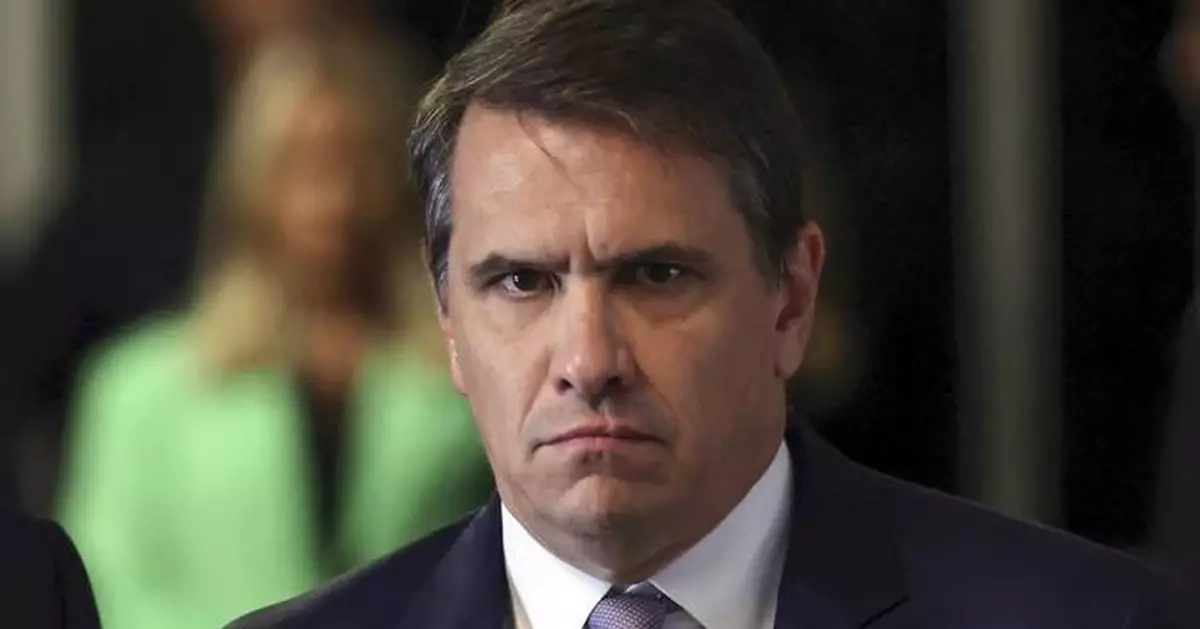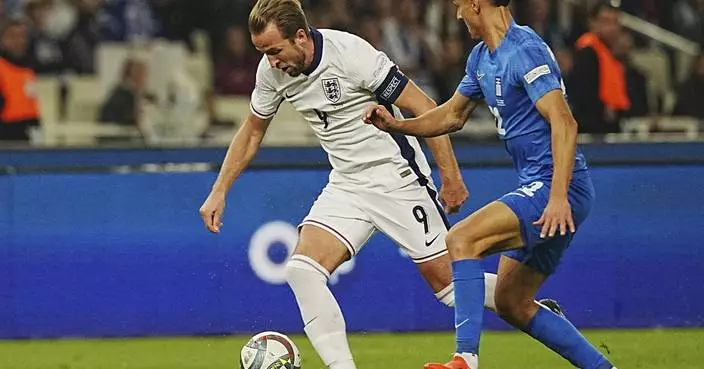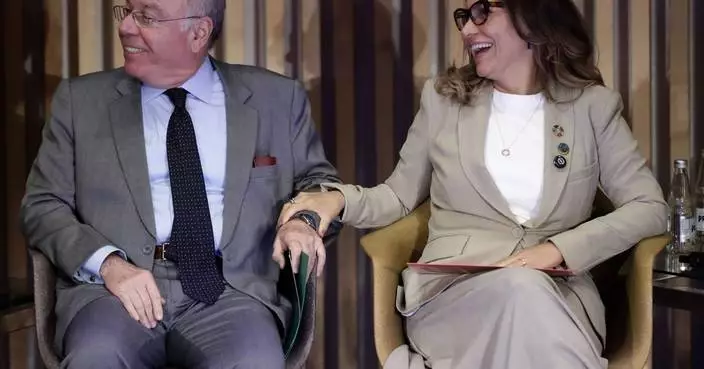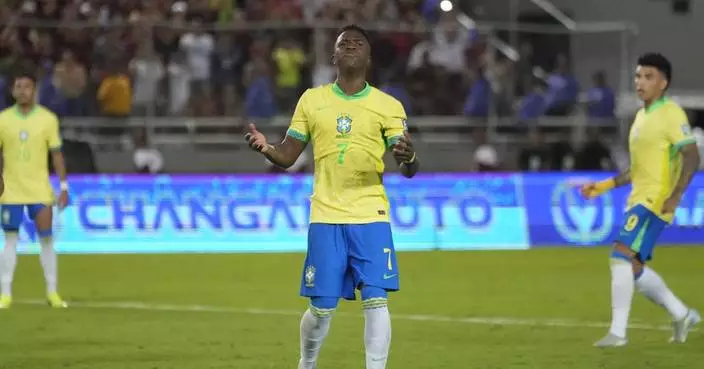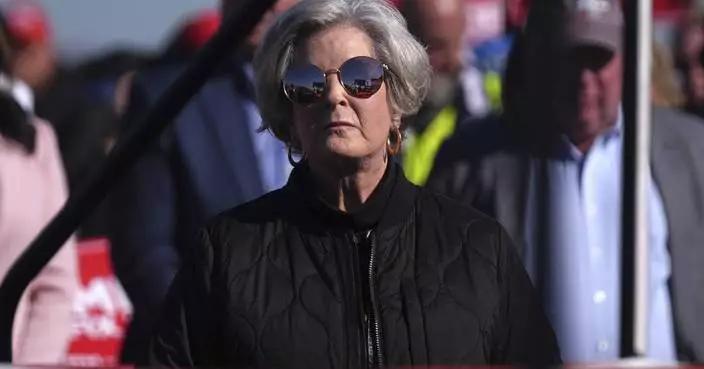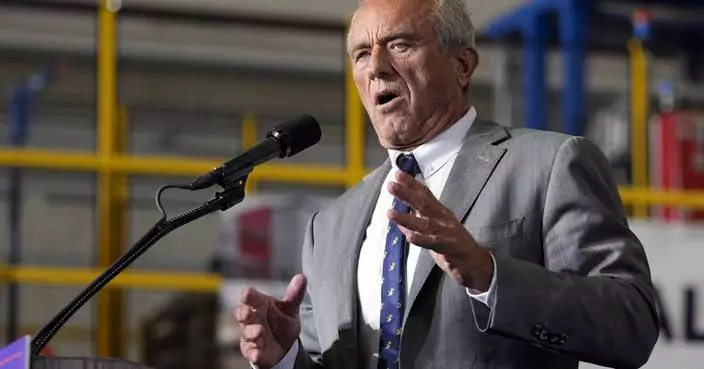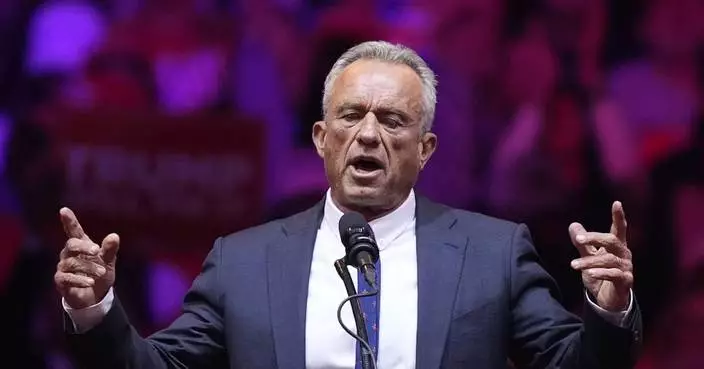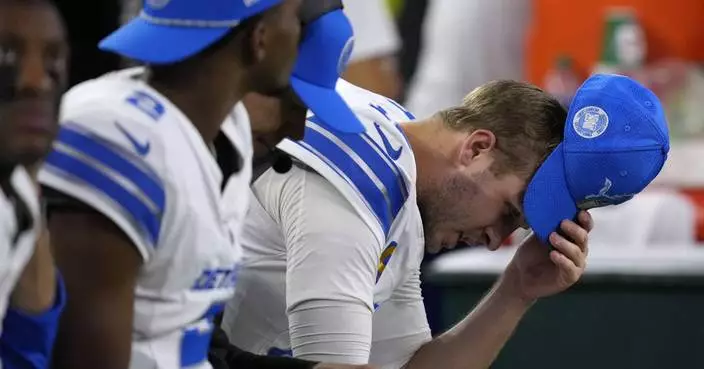WASHINGTON (AP) — President-elect Donald Trump has chosen Todd Blanche, an attorney who led the legal team that defended the Republican at his hush money criminal trial, to serve as the second-highest ranking Justice Department official.
A former federal prosecutor, Blanche has been a key figure on Trump's defense team both in the New York case that ended in a conviction in May, and the federal cases brought by Justice Department special counsel Jack Smith.
“Todd is an excellent attorney who will be a crucial leader in the Justice Department, fixing what has been a broken System of Justice for far too long,” Trump said in a statement Thursday announcing his pick.
If confirmed as deputy attorney general by the Republican-led Senate, Blanche would manage the day-to-day operations of the sprawling Justice Department, which Trump has vowed to radically overhaul.
The announcement comes a day after the president-elect said he had chosen as attorney general Rep. Matt Gaetz of Florida, a Trump loyalist who once faced a Justice Department sex trafficking investigation that ended in no charges.
Trump is appointing two other members of his defense team to high-ranking Justice Department positions.
Emil Bove, an ex-federal prosecutor, will be the principal associate deputy attorney general and will serve as acting deputy attorney general until Blanche is confirmed, Trump said.
Trump tabbed D. John Sauer, who successfully argued his presidential immunity case before the U.S. Supreme Court, to be the solicitor general, representing his administration before the high court. Sauer, who was previously Missouri’s solicitor general, was a Rhodes scholar and served as a Supreme Court clerk for the late Justice Antonin Scalia.
Blanche represented Trump in both the 2020 election interference case in Washington and the Florida case accusing the former president of hoarding classified documents at his Mar-a-Lago estate. In both cases, the defense team successfully mounted a legal strategy focused heavily on delaying the cases until after the election.
U.S. District Judge Aileen Cannon last summer threw out the classified documents case, finding that Smith’s appointment by Attorney General Merrick Garland was illegal. The 2020 election case was stalled amid wrangling over Trump's claims of immunity from prosecution that went up to the Supreme Court.
The Justice Department is now evaluating how to wind down the two prosecutions to comply with longstanding department policy that says sitting presidents cannot be indicted or prosecuted while in office.
Blanche has also represented Trump’s former campaign chairman, Paul Manafort, and succeeded in getting a mortgage fraud case against him dismissed in the same New York court where Trump was convicted. Blanche argued that case, brought by the Manhattan district attorney's office, was too similar to one that landed Manafort in federal prison and therefore amounted to double jeopardy.
Blanche joined Trump’s defense team just prior to his April 2023 arraignment in the New York case. Trump was accused in a scheme to illegally influence the 2016 election through a hush money payment to a porn actor who said the two had sex. Trump was convicted of 34 felony counts, though his attorneys are urging the judge to overturn the guilty verdict.
Blanche left the firm Cadwalader, Wickersham & Taft LLP, where he was a partner in the White Collar Defense and Investigations practice, to form his own practice. Blanche told colleagues at Cadwalader that he was resigning to represent Trump. He'd joined the firm in September 2017.
In an email announcing his departure, he wrote: “I have been asked to represent Trump in the recently charged DA case, and after much thought/consideration, I have decided it is the best thing for me to do and an opportunity I should not pass up.”
Originally from the Denver suburbs, Blanche graduated from American University in Washington, D.C., and Brooklyn Law School.
Blanche first joined the Justice Department as a paralegal in the U.S. attorney’s office for the Southern District of New York, while in law school.
He was later a law clerk for federal judges and then a prosecutor in the same U.S. attorney’s office, which covers Manhattan, the Bronx, and northern suburbs, for about eight years and spent two years as co-chief of the office’s violent crimes unit.
Bove, a star lacrosse player in college, joined Blanche’s law firm last year and handled many key arguments in Trump’s legal cases, including pending efforts to get the hush money conviction thrown out in light of his election victory. As a federal prosecutor in the Southern District of New York, Bove was involved in multiple high-profile prosecutions, including a drug-trafficking case against the former Honduran president’s brother, a man who set off a pressure cooker device in Manhattan and a man who sent dozens of mail bombs to prominent targets across the country.
Sisak reported from New York.
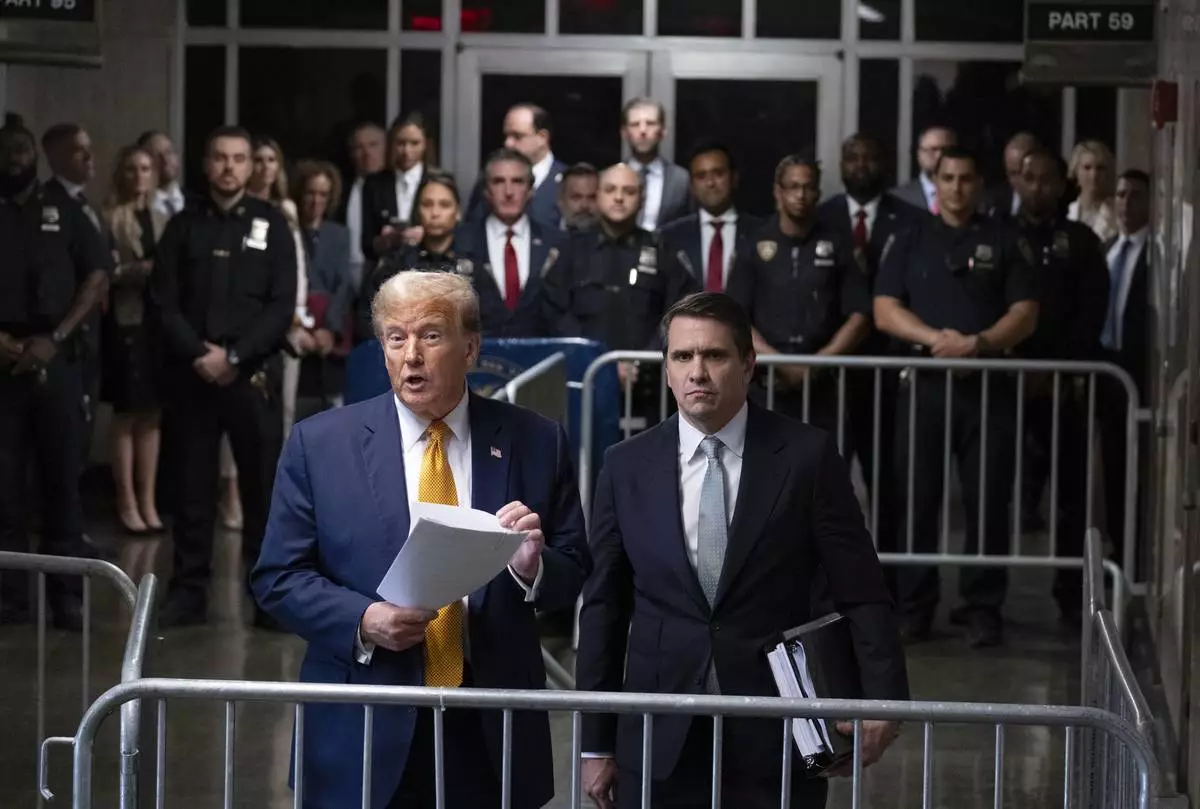
Former President Donald Trump, standing with defense attorney Todd Blanche, speaks at the conclusion of proceedings for the day at his trial at Manhattan criminal court, Tuesday, May 14, 2024, in New York. (AP Photo/Craig Ruttle, Pool)
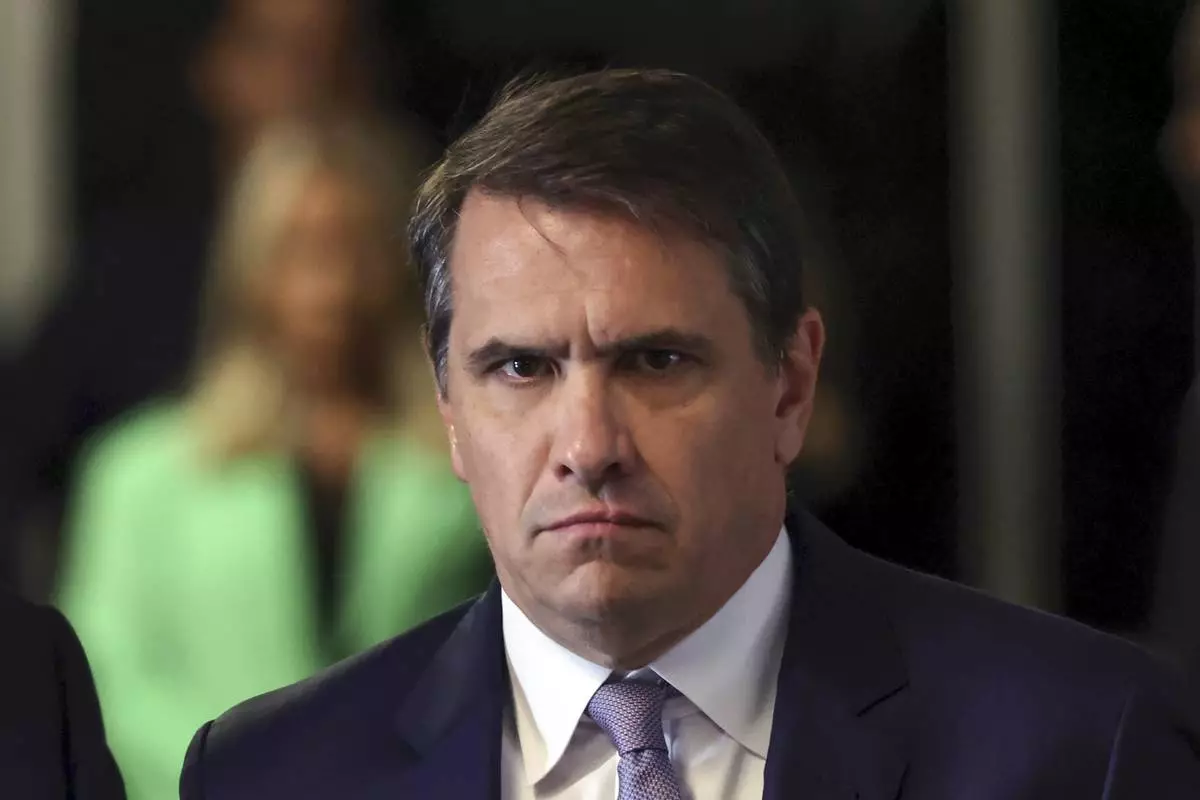
FILE - Attorney Todd Blanche listens as his client former President Donald Trump speaks as he arrives at Manhattan criminal court during jury deliberations in his criminal hush money trial in New York, May 30, 2024. (Michael M. Santiago/Pool Photo via AP, File)
NEW YORK (AP) — When Martin Scorsese was a child growing up in New York's Little Italy, he would gaze up at the figures he saw around St. Patrick's Old Cathedral.
“Who are these people? What is a saint?” Scorsese recalls. “The minute I walk out the door of the cathedral and I don’t see any saints. I saw people trying to behave well within a world that was very primal and oppressed by organized crime. As a child, you wonder about the saints: Are they human?”
For decades, Scorsese has pondered a project dedicated to the saints. Now, he's finally realized it in “Martin Scorsese Presents: The Saints,” an eight-part docudrama series debuting Sunday on Fox Nation, the streaming service from Fox News Media.
The one-hour episodes, written by Kent Jones and directed by Matti Leshem and Elizabeth Chomko, each chronicle a saint: Joan of Arc, Francis of Assisi, John the Baptist, Thomas Becket, Mary Magdalene, Moses the Black, Sebastian and Maximillian Kolbe. Joan of Arc kicks off the series on Sunday, with three weekly installments to follow; the last four will stream closer to Easter next year.
In naturalistic reenactments followed by brief Scorsese-led discussions with experts, “The Saints” emphasizes that, yes, the saints were very human. They were flawed, imperfect people, which, to Scorsese, only heightens their great sacrifices and gestures of compassion. The Polish priest Kolbe, for example, helped spread antisemitism before, during WWII, sheltering Jews and, ultimately, volunteering to die in the place of a man who had been condemned at Auschwitz.
Scorsese, who turns 82 on Sunday, recently met for an interview not long after returning from a trip to his grandfather's hometown in Sicily. He was made an honorary citizen and the experience was still lingering in his mind.
Remarks have been edited for clarity and brevity.
SCORSESE: I go back to my early childhood and respite and the sanctuary I found in St. Patrick’s Old Cathedral. Not being able to play sports or be a tough guy in the streets. And, you know, the streets were pretty tough down there. I found a sanctuary in that place. It's now a basilica. The first Catholic Cathedral in New York in 1810, 1812. It figures in “Gangs of New York.” The Know Nothings and anti-immigration groups attacked it in 1844. Archbishop Hughes fought back. It’s a place rife with history. In this contemplation, I was curious about these figures, these statues, and what they represented. They had stories.
SCORSESE: It took time to think about that and to learn that, no, the point is that they are human. For me, if they were able to do that, it’s a good example for us. If you take it and put it in a tough world — if you’re in a world of business or Hollywood or politics or whatever — if you’re grounded in something which is a real, acting out of compassion and love, this is something that has to be admired and emulated. They make mistakes. I found that by over-appreciating that person, it almost takes you off the hook. “At least there’s someone doing it.” Well, what about you? Dorothy Day was quite something but she knew: Don’t put that label on me because it gets everyone off the hook.
SCORSESE: I’ve been wanting to do this for years. I tried doing this back in 1980 with RAI Television in Rome. Then it fell apart and I put the energies into “The Last Temptation of Christ,” “Kundun,” “Silence” — the ones that were obviously in that realm of what you may call spirituality.
Here, they came by and it was actually going to happen. I said, “Yeah, I’ll go with this.” They said, “This is the outlet.” I said, “Alright, as long as we have the freedom to express what we want.” They went with the scripts. They went with the shoot. They went with the cuts. Now what I think is: Do we take these thoughts or expressions and only express them to people who agree with us? It’s not going to do us any good. I’m talking about keeping an open mind.
Shooting in Manhattan and shooting in Oklahoma (where “Killers of the Flower Moon” was filmed) are two different things. Being around people on a farm that is one-tenth bigger than the size of Manhattan is very different than being on 63rd Street. You begin to see the world from how they perceive it. Just to understand what daylight and nighttime means in rural areas. That was a revelatory experience being out there for that long.
SCORSESE: The filmmaking comes from God. It comes from a gift. And that gift is also involved with an energy or a need to tell stories. As a storyteller, somehow there’s a grace that’s been given to me that’s made me obsessive about that. The grace has been through me having that ability but also to fight over the years to create these films. Because each one is a fight. Sometimes you trip, you fall, you hit the canvas, can’t get up. You crawl over bleeding and knocked around. They throw some water on you and somehow you make it through. You go to another. Then you go to another. This is grace, it really is.
For me, it’s not that cinema is a god. It’s the expression of God. Creativity is the expression of God. Something happens in you when it clicks, when it works. Not everybody thinks it works, but maybe you do. But something happens and there’s no way of expressing that, except that it’s a gift. For me, it’s a gift to experience and existing for that moment. So it comes through cinema. It comes through movies. Even a commercial because commercials are not easy. You have to tell a story in less than 45 seconds. My last picture was three hours, 15 minutes. (Laughs) Come on!
SCORSESE: It’s an option but I’m still working on it. There’s a very strong possibility of me doing a film version of Marilynne Robinson’s “Home,” but that’s a scheduling issue. There’s also a possibility of me going back and dealing with the stories from my mother and father from the past and how they grew up. Stories about immigrants which tied into my trip to Sicily. Right now, there’s been a long period after “Killers of the Flower Moon.” Even though I don’t like getting up early, I’d like to shoot a movie right now. Time is going. I’ll be 82. Gotta go.
SCORSESE: You’re guided by: Is it worth doing at this late stage in your life? Can you make it through? Is it worth your time? Because now, the most valuable thing aside from people I love, my family, is time. That’s all there is.
SCORSESE: Some older ones I’ve been watching. There was one film I liked a great deal I saw two weeks ago called “I Saw the TV Glow.” It really was emotionally and psychologically powerful and very moving. It builds on you, in a way. I didn’t know who made it. It’s this Jane Schoenbrun.
People should see “A Face in the Crowd” over and over again. I think that’d be important.
SCORSESE: Well, of course I have strong feelings. I think you can tell from my work, what I’ve said over the years. I think it’s a great sadness, but at the same time, it’s an opportunity. A real opportunity to make changes ultimately, maybe, in the future, never to despair, and to understand the needs of other people, too. Deep introspection is needed at this point. Action? I’m not a politician. I’d be the worst you could imagine. I wouldn’t know what actions to take except to continue with dialogue and, somehow, compassion with each other. This is what it’s about.
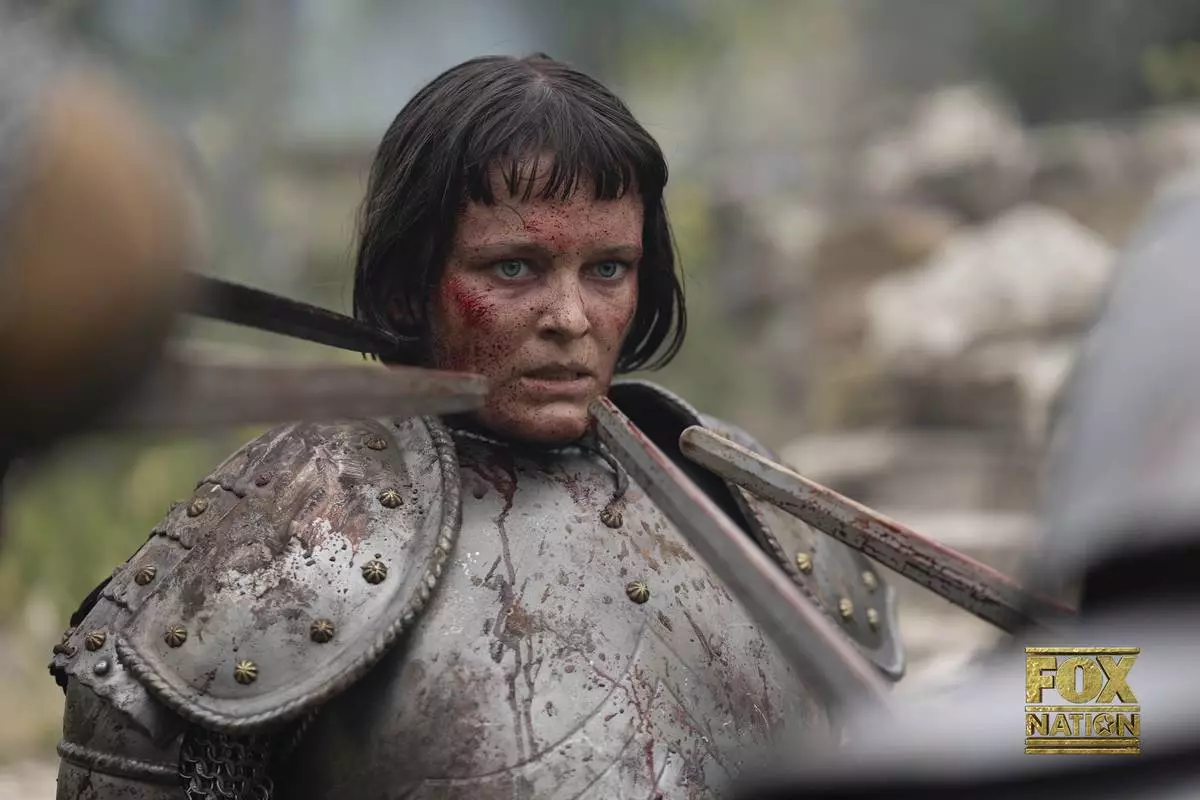
This image released by Fox Nation shows Liah O'Prey as Joan of Arc, center, in a scene from "Martin Scorsese Presents: The Saints," a new docudrama series by Martin Scorsese. (Slobodan Pikula/Fox Nation via AP)
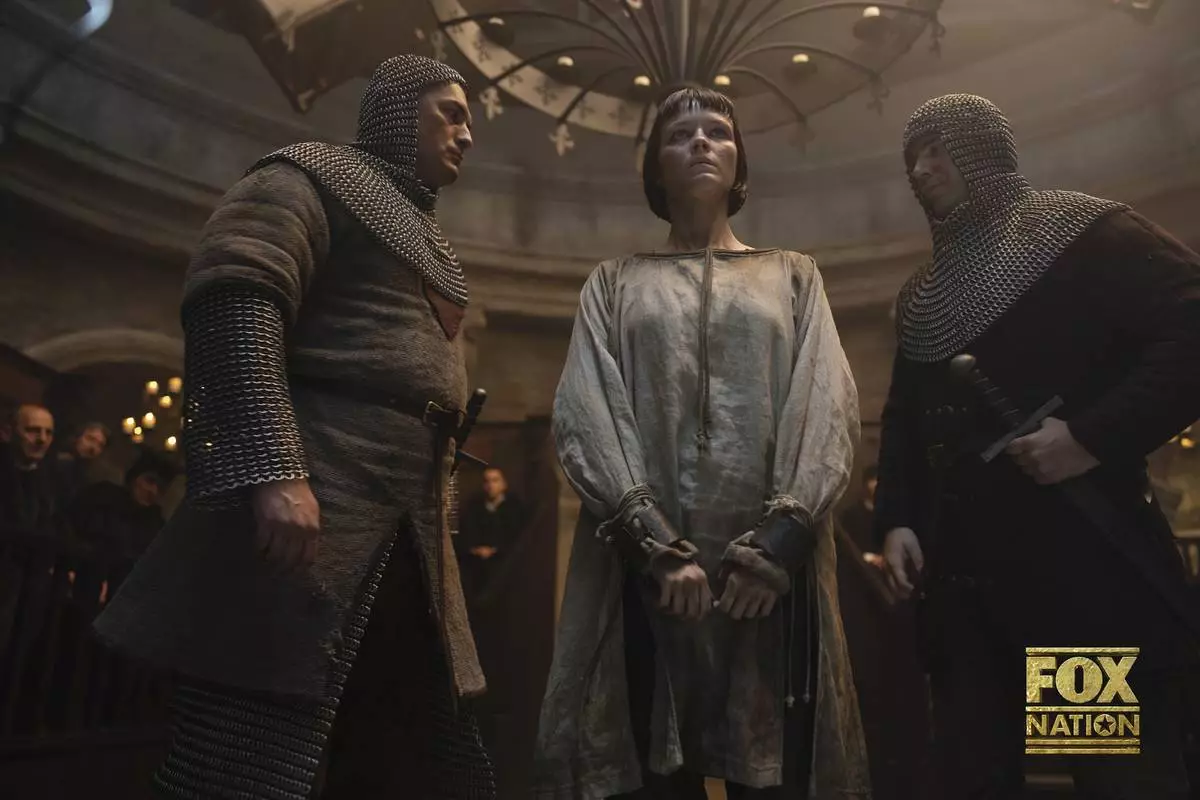
This image released by Fox Nation shows Liah O'Prey as Joan of Arc, center, in a scene from "Martin Scorsese Presents: The Saints," a new docudrama series by Martin Scorsese. (Slobodan Pikula/Fox Nation via AP)
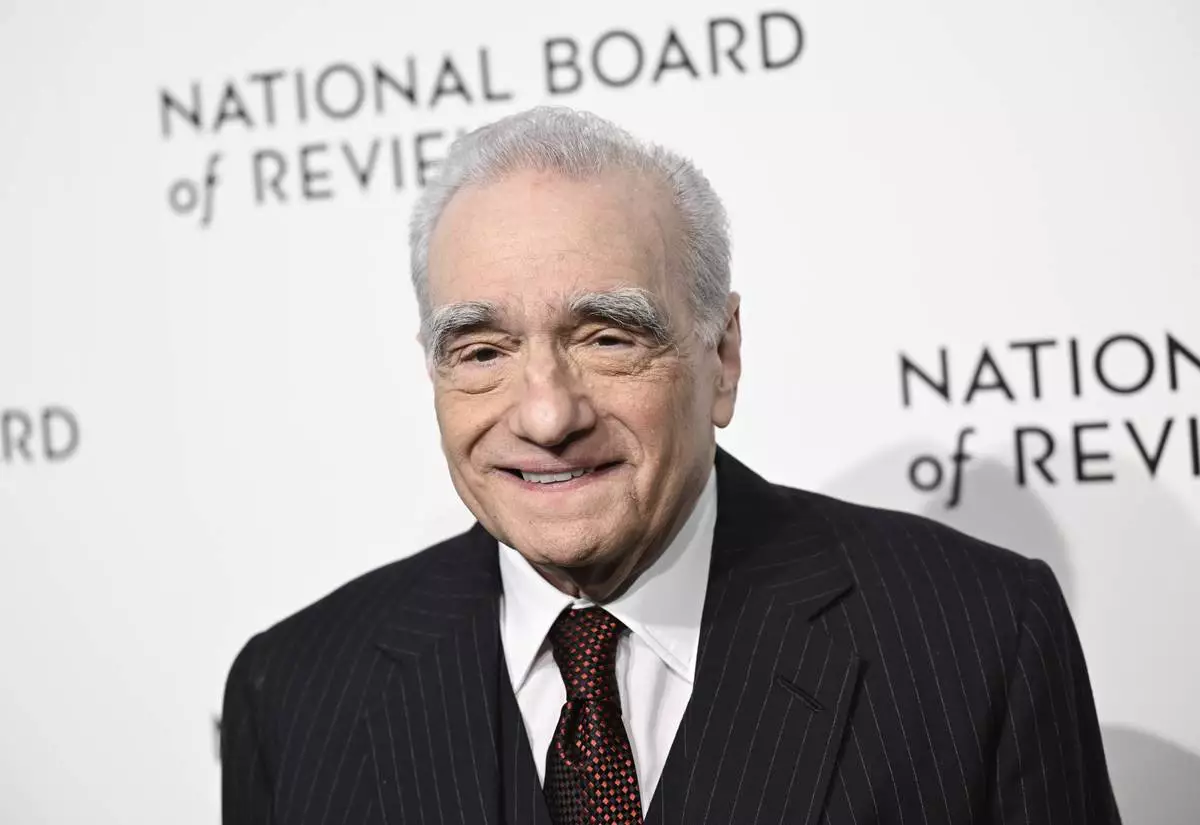
FILE - Martin Scorsese appears the National Board of Review awards gala in New York on Jan. 11, 2024. (Photo by Evan Agostini/Invision/AP, File)




